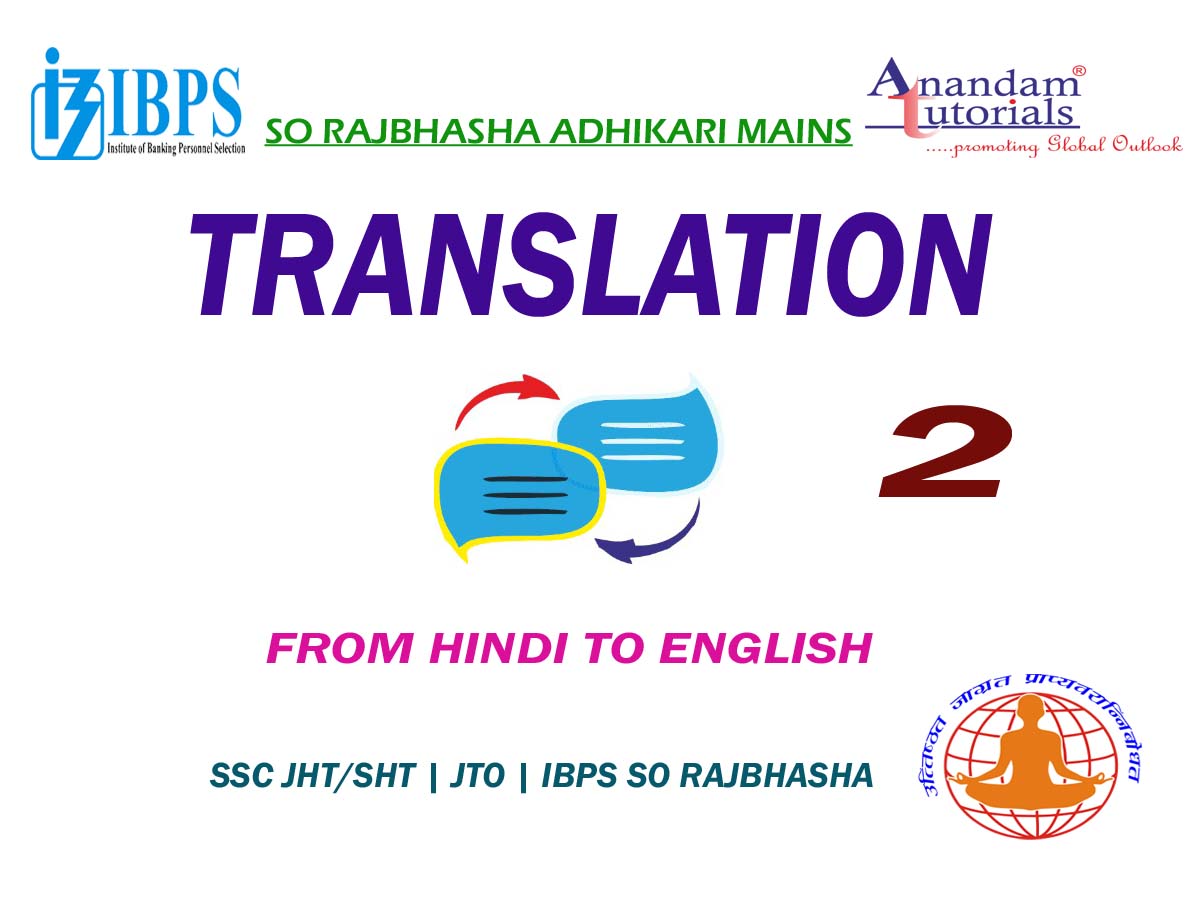यहाँ 10 प्रश्नों वाली बहुविकल्पीय प्रश्नोत्तरी दी गई है। वह विकल्प चुनें जिसमें निम्नलिखित को सही ढंग से अंग्रेजी में अनुवादित किया गया है। यह प्रश्नोत्तरी सभी अनुवादक परीक्षाओं जैसे IBPS So Rajbhasha Adhikari, AIIMS JHT, SSC JHT, DRDO JTO, ISRO JTO और अन्य के लिए महत्वपूर्ण है।
भारत में आर्थिक सुधारों ने कई क्षेत्रों में महत्वपूर्ण बदलाव लाए हैं।
A) Economic reforms in India have slowed down multiple sectors.
B) Economic reforms in India have brought significant changes in several areas.
C) Economic reforms in India had little effect on different sectors.
D) Economic reforms in India primarily affected only the technology sector.
E) None of these.
Answer: B
सरकार ने ग्रामीण विकास के लिए नई नीतियाँ बनाई हैं।
A) The government has created new policies for urban development.
B) The government has ignored rural development policies.
C) The government has formulated new policies for rural development.
D) The government has avoided creating new policies.
E) None of these.
Answer: C
कई वर्षों से भारत में प्रदूषण एक बड़ी समस्या बनी हुई है।
A) Pollution has been a major issue in India for several years.
B) India has no pollution issues for the past few years.
C) Pollution was solved in India years ago.
D) Pollution increased in India only recently.
E) None of these.
Answer: A
शिक्षा में सुधार लाने के लिए सरकार ने नई योजनाओं की घोषणा की है।
A) The government has abandoned plans to improve education.
B) The government has announced new plans to improve education.
C) The government increased taxes for better education.
D) Education has not been a priority for the government.
E) None of these.
Answer: B
भारत में कृषि का अर्थव्यवस्था में महत्वपूर्ण योगदान है।
A) Agriculture has no role in India’s economy.
B) Agriculture is the smallest sector in India’s economy.
C) Agriculture makes a significant contribution to India's economy.
D) Agriculture in India depends on international trade.
E)None of these.
Answer: C
शिक्षा का अधिकार प्रत्येक बच्चे का मौलिक अधिकार है।
A) Education is a fundamental right for every child.
B) Only adults have the right to education.
C) Education is optional for children.
D) Education rights are limited to cities.
E) None of these.
Answer: A
भारत में विज्ञान और प्रौद्योगिकी में तेजी से विकास हुआ है।
A) Science has no growth in India.
B) India has seen rapid growth in science and technology.
C) Technology in India remains underdeveloped.
D) India relies on foreign technology only.
E) None of these.
Answer: B
किसानों के लिए सरकार ने कई कल्याणकारी योजनाएँ चलाई हैं।
A) The government has launched several welfare schemes for farmers.
B) Farmers do not have any welfare schemes.
C) Welfare schemes focus only on urban workers.
D) Welfare schemes are irrelevant to agriculture.
E) None of these.
Answer: A
स्वच्छता अभियान का उद्देश्य स्वच्छ भारत का निर्माण करना है।
A) India has no need for cleanliness campaigns.
B) The campaign discourages cleanliness in India.
C) The aim of the Cleanliness Campaign is to build a clean India.
D) Cleanliness campaigns focus only on rural areas.
E) None of these
Answer: C
डिजिटल भारत कार्यक्रम का उद्देश्य डिजिटल बुनियादी ढाँचे को मजबूत करना है।
A) The Digital India program aims to strengthen digital infrastructure.
B) Digital India discourages digital growth.
C) The program focuses only on educational infrastructure.
D) Digital India eliminates digital resources.
E) None of these
Answer: A
Follow the link for a comprehensive IBPS SO Rajbhasha Adhikari Exam Course - IBPS SO Rajbhasha Adhikari Main Exam Course
Courses for different TRANSLATOR EXAMS are available. Install our Application - Anandam Tutorials - from Play Store.
